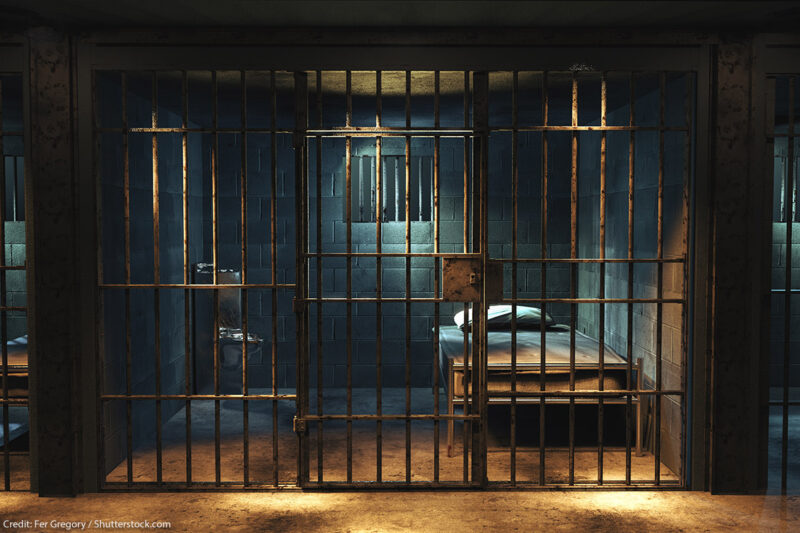We Are Holding Arizona Accountable for the Needless Suffering and Deaths of Incarcerated People


A prison sentence should not mean people lose fundamental human rights such as access to health care or humane conditions of confinement. In Arizona, after almost a decade of broken promises, the ACLU, the Prison Law Office, and their co-counsel are in court proving that state prison officials continue to disregard their constitutional obligations to incarcerated people.
In 2012, the ACLU National Prison Project, the ACLU of Arizona, the Prison Law Office, the Arizona Center for Disability Law, and the law firm of Perkins Coie filed a class action lawsuit against the Arizona Department of Corrections (ADC) in federal court. The lawsuit challenged ADC’s years of inattention to the health needs of state prisoners and the inhumane conditions of solitary confinement so harsh that they violated the Eighth Amendment ban on cruel and unusual punishment. That case resulted in a court-approved settlement in 2014 that was meant to protect the rights and health of incarcerated people in ADC’s prisons. What ensued was not reform, but rather years of intransigence by Arizona officials and promises they seemingly never intended to fulfill.
In the seven years since we settled the case, we repeatedly detailed in court filings the preventable suffering and deaths, including deaths by suicide in solitary confinement, that have occurred in Arizona’s prisons. Former prison employees and incarcerated people have bravely come forward to blow the whistle about the inadequate health care and gratuitously cruel treatment of people in isolation units.
The federal judges overseeing the implementation of these reforms have issued numerous enforcement orders and have twice found Arizona officials in contempt of court, fining the state more than $2.5 million for their for-profit health care contractors’ failure to live up to promises to provide basic health care to the people in their prisons. One of the judges wrote in June 2018 that prison officials “are at times more interested in obtaining compliance with the stipulation by playing a shell game than by providing care to the Plaintiff Class.” In February 2021, a different judge overseeing the case again found ADC in contempt of court, writing that “nearing compliance is not enough to avoid sanctions.”
On July 16, 2021, Judge Roslyn O. Silver withdrew the court’s approval of the settlement agreement due to the State’s failure to live up to its constitutional duty to provide adequate health care and prison conditions to incarcerated persons, and set the case for trial to begin Nov. 1, 2021. It is extraordinary not only in prison litigation but in all civil rights impact litigation for a federal court to find state officials in contempt twice in three years, and then to re-set a settled case for trial.
Since July, we have amassed a devastating amount of evidence that we are now presenting to the court during a three-week trial. The evidence shows that ADC has abdicated its responsibility to deliver health care through its merry-go-round of for-profit correctional health care vendors, and incarcerated people continue to suffer excruciating pain and permanent injuries and preventable deaths because of that failure. The evidence also shows that the conditions in ADC’s isolation units are gratuitously cruel, including the indefinite incarceration in solitary confinement of seriously mentally ill persons and children who were convicted as adults. The evidence presented at trial includes expert testimony regarding unconstitutional medical care, mental health care, the psychological effects and conditions in isolation units, and health care staffing.
A large contributing factor to the problems we are presenting to the federal court is Arizona’s overreliance on incarceration. Arizona has the fifth highest incarceration rate in the United States and disproportionately incarcerates communities of color. Black people constitute 5 percent of the state’s population, but 15 percent of people in Arizona’s prisons; 32 percent of the state’s population is Latinx or Hispanic, but they constitute 40 percent of the incarcerated population.
Charging misdemeanors as felonies, throwing thousands of people behind bars instead of offering drug treatment or diversion services, and abusing prosecutorial power to secure guilty pleas are just some of the tactics used that have led to Arizona’s exceedingly high rate of incarceration.
The burden for paying for this broken system largely falls on the back of Arizona taxpayers. Taxpayers pay more than $1.3 billion a year to maintain the prison system — more than they spend on higher education. ADC pays more than $200 million per year to subcontract its medical services to a series of private, for-profit prison health care providers.
More than seven years ago, the state of Arizona made a promise to meet its constitutional obligations to tens of thousands of incarcerated people to improve conditions inside its prisons. We believe that the court will make sure that these promises are finally kept.


